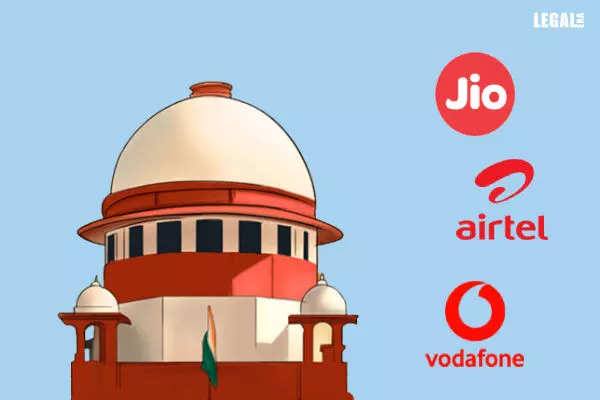- Home
- News
- Articles+
- Aerospace
- Artificial Intelligence
- Agriculture
- Alternate Dispute Resolution
- Arbitration & Mediation
- Banking and Finance
- Bankruptcy
- Book Review
- Bribery & Corruption
- Commercial Litigation
- Competition Law
- Conference Reports
- Consumer Products
- Contract
- Corporate Governance
- Corporate Law
- Covid-19
- Cryptocurrency
- Cybersecurity
- Data Protection
- Defence
- Digital Economy
- E-commerce
- Employment Law
- Energy and Natural Resources
- Entertainment and Sports Law
- Environmental Law
- Environmental, Social, and Governance
- Foreign Direct Investment
- Food and Beverage
- Gaming
- Health Care
- IBC Diaries
- In Focus
- Inclusion & Diversity
- Insurance Law
- Intellectual Property
- International Law
- IP & Tech Era
- Know the Law
- Labour Laws
- Law & Policy and Regulation
- Litigation
- Litigation Funding
- Manufacturing
- Mergers & Acquisitions
- NFTs
- Privacy
- Private Equity
- Project Finance
- Real Estate
- Risk and Compliance
- Student Corner
- Take On Board
- Tax
- Technology Media and Telecom
- Tributes
- Viewpoint
- Zoom In
- Law Firms
- In-House
- Rankings
- E-Magazine
- Legal Era TV
- Events
- Middle East
- Africa
- News
- Articles
- Aerospace
- Artificial Intelligence
- Agriculture
- Alternate Dispute Resolution
- Arbitration & Mediation
- Banking and Finance
- Bankruptcy
- Book Review
- Bribery & Corruption
- Commercial Litigation
- Competition Law
- Conference Reports
- Consumer Products
- Contract
- Corporate Governance
- Corporate Law
- Covid-19
- Cryptocurrency
- Cybersecurity
- Data Protection
- Defence
- Digital Economy
- E-commerce
- Employment Law
- Energy and Natural Resources
- Entertainment and Sports Law
- Environmental Law
- Environmental, Social, and Governance
- Foreign Direct Investment
- Food and Beverage
- Gaming
- Health Care
- IBC Diaries
- In Focus
- Inclusion & Diversity
- Insurance Law
- Intellectual Property
- International Law
- IP & Tech Era
- Know the Law
- Labour Laws
- Law & Policy and Regulation
- Litigation
- Litigation Funding
- Manufacturing
- Mergers & Acquisitions
- NFTs
- Privacy
- Private Equity
- Project Finance
- Real Estate
- Risk and Compliance
- Student Corner
- Take On Board
- Tax
- Technology Media and Telecom
- Tributes
- Viewpoint
- Zoom In
- Law Firms
- In-House
- Rankings
- E-Magazine
- Legal Era TV
- Events
- Middle East
- Africa
Supreme Court notice to Vi and Airtel on Jio's plea

Supreme Court notice to Vi and Airtel on Jio's plea
The telecom operators had moved TDSAT against the telecommunication department's demand for penalties
The Supreme Court has issued a notice to Vodafone-Idea Limited and Bharti Airtel Limited on a plea filed by Reliance Jio Infocomm Limited challenging the order of the Telecom Disputes Settlement and Appellate Tribunal (TDSAT).
It dismissed the application filed by Vodafone-Idea and Bharti Airtel against the demand notices issued in September 2021 by the Department of Telecommunications (DoT) levying a penalty of Rs.3,050 crores on the two entities for allegedly denying adequate Points of Interconnection (PoI) to Reliance Jio in 2016.
A bench comprising Chief Justice NV Ramana, Justice Krishna Murari and Justice Hima Kohli issued the direction while considering a civil appeal by Reliance Jio. The three petitions arose out of complaints filed by Reliance Jio before the Telecom Regulatory Authority of India (TRAI).
The DoT had issued the notices, accepting the recommendations of TRAl after giving the petitioners an opportunity of being heard. It imposed a penalty on the petitioners before the TDSAT.
Reliance Jio argued that the notices had been impugned before the TDSAT and categorical assertions were made against it relating to the interpretation of the bilateral contracts between Reliance Jio and the petitioners. It was, therefore, directly affected by the outcome of the petitions.
It further submitted that even while rejecting its applications, the impugned order implicitly recognized that Reliance Jio was a necessary and proper party whose presence would assist the adjudication of the issues. It also held that Reliance Jio was permitted to file written notes of not more than 10 pages, which the tribunal might look into at the time of the final adjudication.
Meanwhile, Vodafone-Idea, Airtel and Bharti Hexacom Limited challenged the demand notices and the realization of the penalty was summarily stayed in November 2021 by TDSAT.
According to the petitioner, it was as a consequence of the denial of adequate PoI to Reliance Jio that it suffered call failures of over Rs.10.2 crores on a daily basis during that period. As a result, not only its subscribers had to suffer immensely, but enormous harm was also caused to Reliance Jio's reputation amongst the consumers, hampering its growth in the telecom sector.
Reliance Jio argued in its petition, "This was, of course, the very intention with which the concerned denial of POIs was orchestrated seeking to protect their monopoly in the telecom sector at the expense of the Indian consumers."



